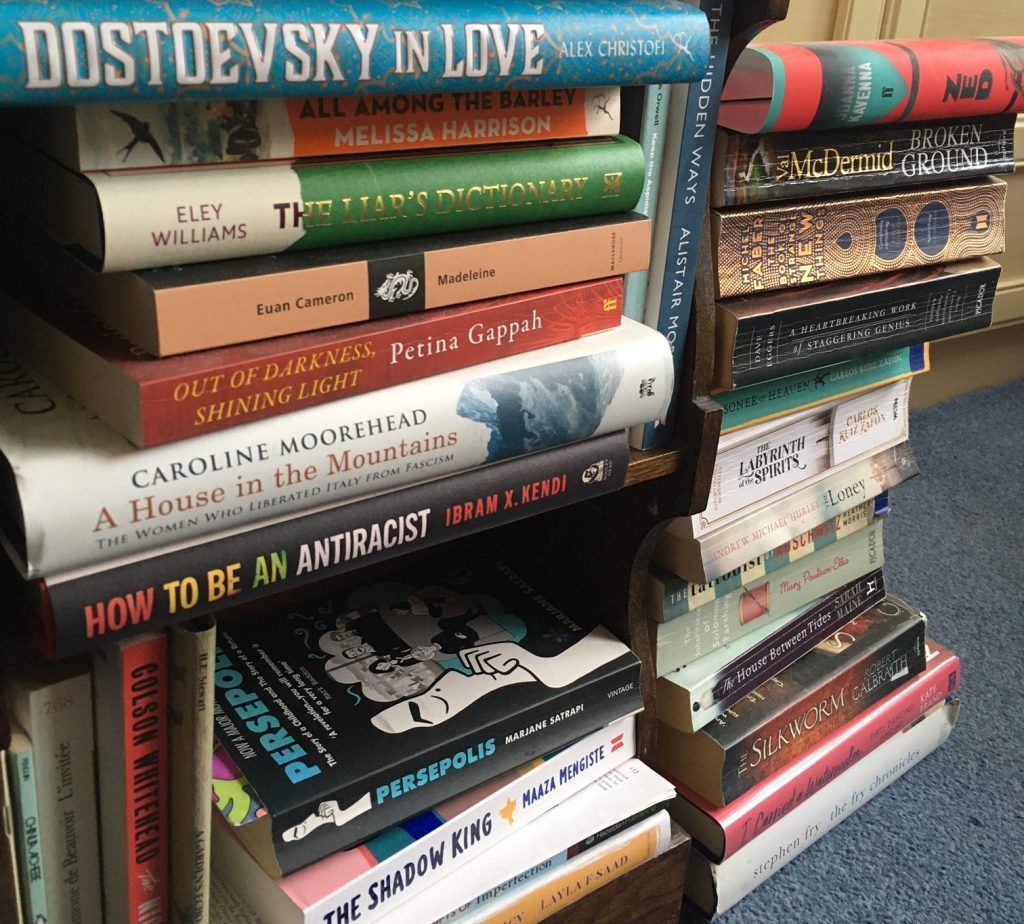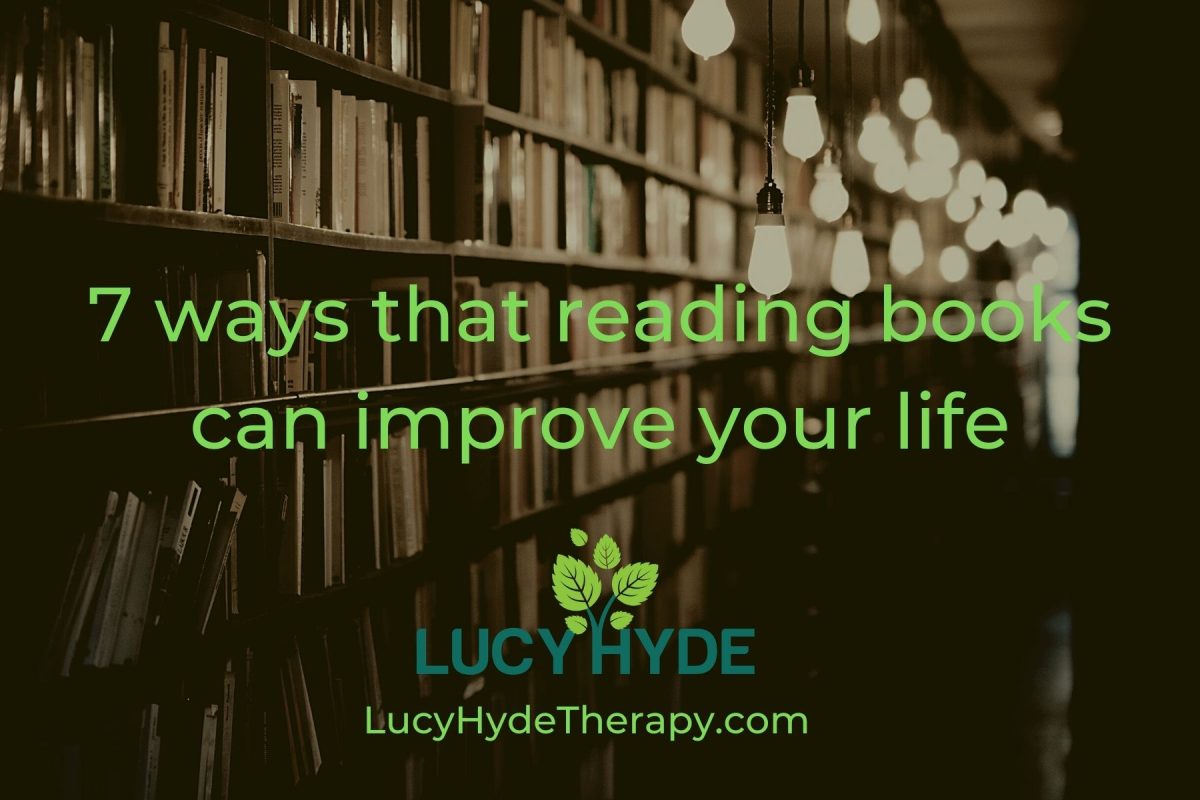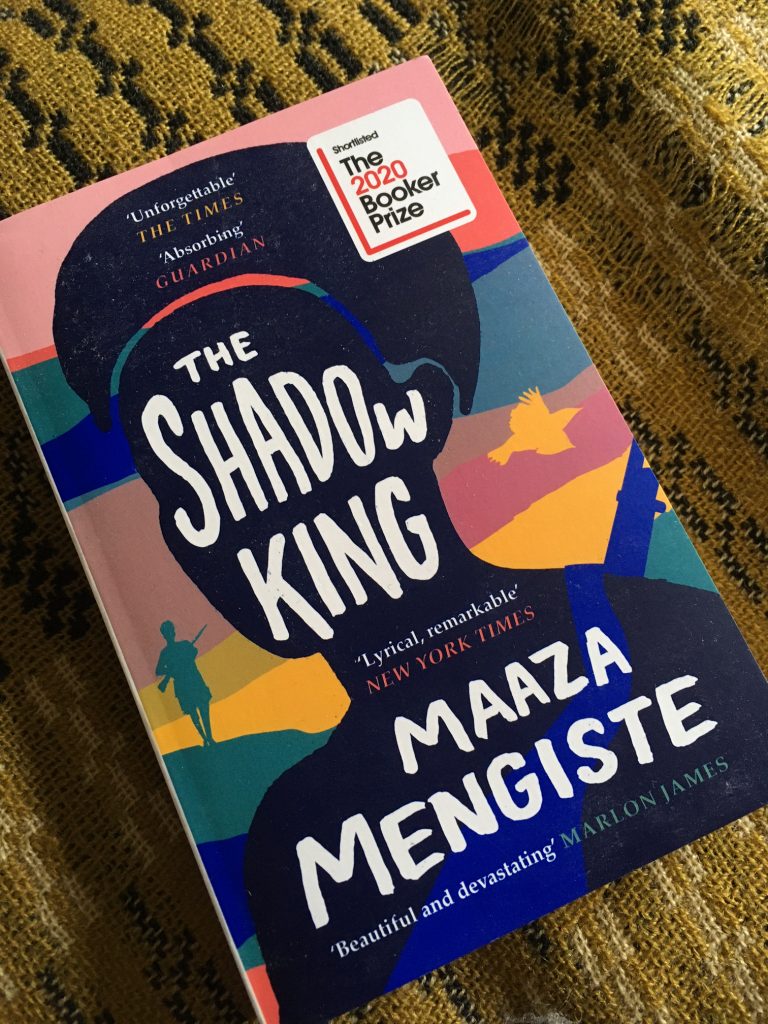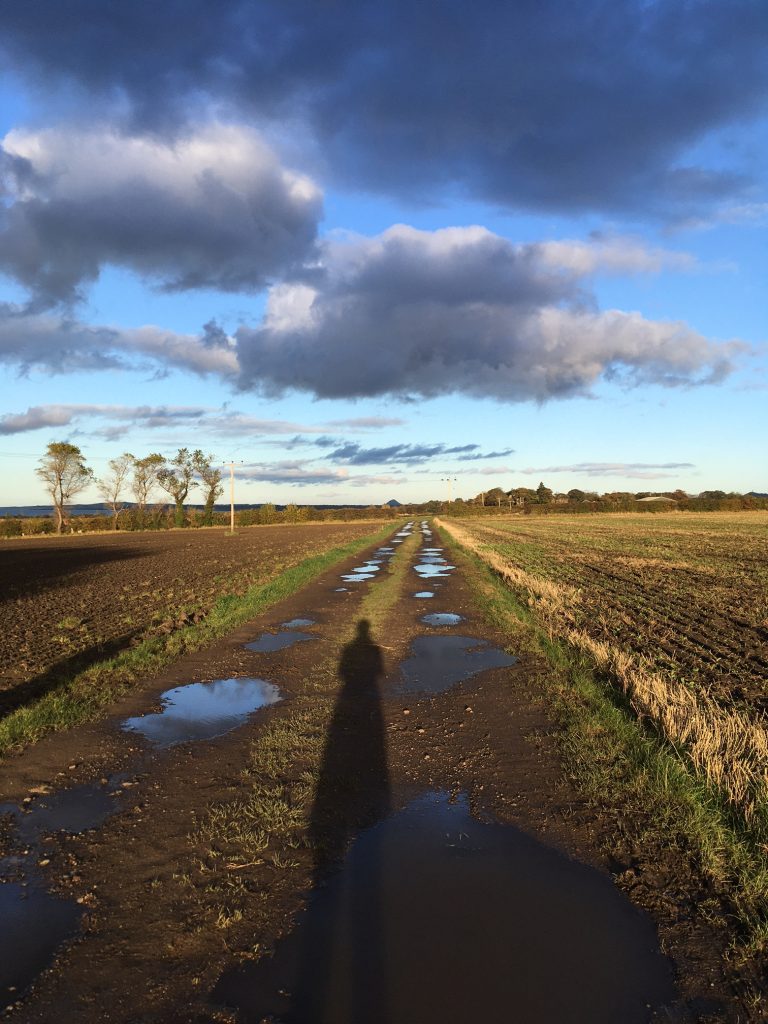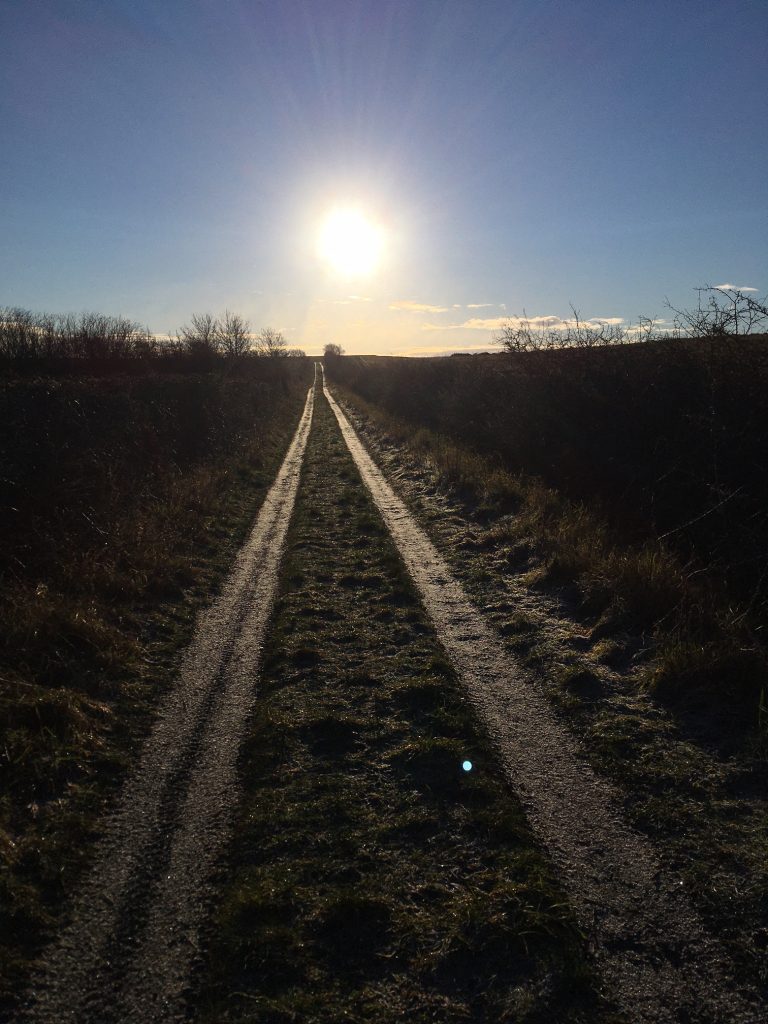7 ways that reading books can improve your life
We read to know we’re not alone
William Nicholson, ‘Shadowlands’
When I want to escape to another world, I do it through reading. For that half-hour, I’m not in my own life anymore, I’m inhabiting a different world, where I really care deeply about the experience of someone else, where I feel their feelings, even becoming a different person.
I believe reading can change your life in different ways.
Throughout history, education has literally changed people’s lives, and there is a political and humanitarian argument for literacy being a right for that reason. While I completely subscribe to that (after all, restricting educational access to males, or to white people, has been a way of subjugating different parts of societies in order to keep power in the hands of the few)- what I’m talking about here is at a more individual level.
I grew up with my nose in a book. We didn’t have a telly in my house, a fact that I was resentful of at various points in my childhood. (If you want to know how to nurture a child’s belief that they’re the odd one out or will never belong, deprive them of the ability to engage in playground conversations about last night’s Grange Hill episode – I used to watch TV round at my best friend’s house, but Grange Hill came on just at the time when I had to go home for my tea.)

However, setting aside the injustices of my upbringing for a moment, what I did have plenty of was books. Apparently even before I learned to read, my parents would be woken up each morning by me calling from my cot “Light on and books!” I’m not sure I would describe reading as a favourite activity – it was, simply, an indelible part of my life.
When I grew up and left home for uni, then work, reading time was squeezed by the demands of adult life – and by my developing tendency to, at some level, believe that ‘unproductive’ time was self-indulgent. I wonder now if there’s some connection for me with reading being ‘lazy’ because it’s a sedentary activity. I still really enjoyed to read – but I wouldn’t let myself do it as much as I liked – I was always too busy.
I was well into my 30s when I started a bookgroup with a friend. Having to read a book a month, for that, encouraged me to make more time for reading. I think the logic probably went something like this: “Reading a book for bookgroup isn’t self-indulgent because I’m answerable to other people.” But I began to feel resentful that everything I was reading was chosen by others (we take it in turns to choose a book) and so that prompted me to carve out more time so that I could read what I wanted to read too.
My time was often constrained, especially when I started psychotherapy training alongside work – and transferred my ‘shoulds’ about productive behaviour to the self-expectation of reading books by therapy experts. But at least personal therapy, and psychotherapy training, helped me to recognise what a strong ‘Critical Parent’ lived in me – telling me what I ‘should’ be doing – and I gradually started to allow myself to trust my instincts into what I wanted – or needed – once more.
In recent years, reading has become a form of self-care, and I feel more connected to that little Lucy who liked to escape from the real world with a book.
One of the things I’ve appreciated about lockdown is that I’ve been able to indulge (that word again!) that love, because there’s not so much than I can do (regardless of whether I want to or not), and because so much of my work is screen-based, that looking at a page instead is a way of looking after myself physically as well as mentally.
The experience of recently ramping up my book-reading has prompted me to reflect on how I experience emotional benefits from it.
How is reading a form of self-care?
1. It can ease symptoms of anxiety, stress and depression
Reading a book that you can lose yourself in gives you a break from life. I don’t generally advocate distraction as a technique for managing anxiety or depression, as it can shore up a habit that if there are feelings that are too uncomfortable to deal with, they get ignored or suppressed, and however that might feel comfortable in the moment, those feelings don’t go away; they just get stored up.
Having said that, if you get into cycles of overthinking, ruminating, feeling anxious and trying to think your way out of it, interrupting that cycle can be helpful. The fight or flight hormones (that are running through your body as a result of some part of you panicking that it needs to do something to keep safe by ‘fixing a problem’) get a chance to dissipate. That allows your breathing to steady, your blood pressure to drop, your muscles to relax; there’s a physical as well as mental and emotional benefit.
Note – I’m recommending a book you can ‘lose yourself in’, that will allow you to switch off, so preferably one unrelated to the situation you’re worrying about or trying to fix. I know only too well that when my imposter syndrome kicks in, and part of me believes I’m not a good-enough therapist, I feel a pull to read ‘professional stuff’ – about techniques, or presenting problems or theory. That kind of reading has its place – but not here.
This is about taking care of your whole self, not about fixing the problem your busy brain is worrying away at.

2. It helps you make connections
There’s nothing like being immersed in another world to help me develop my empathy for what someone else, with a completely different life experience from me, might be feeling. The process of doing this by reading is different from that of watching a film because the brain engages and involves itself in a different way – for example, reading about riding a bike activates the parts of the brain that would be involved in riding a bike.
Even if you’ve never left your country or particular area of the world, you can visit other places through books and build your understanding, and that will help you connect to others – virtual travel broadening your mind. If you want a further stretch then reading in another language from that of your mother tongue can also help you shift your perspective, because the way that different languages behave shapes the way that people think.
Obviously this has potential to benefit others – if you meet people from different places and with different backgrounds from you, you’ve developed your intuition and empathy to respond to them – but there is also a benefit to you, because of the emotional experience of connecting more deeply.
You might make connections to experiences too, perhaps to something you didn’t notice you were missing. For example, I’m often drawn to books that are embedded in the landscape or nature and reading them benefits me in at least two ways; firstly, I get something of that experience of actually being in the place described, of feeling that awe or wonder or amazement; and secondly that they remind me to notice my environment when I’m outside, often at quite a small scale – they prompt me to rediscover the world around me and to really notice where I am right now, grounding me.
3. It improves your communication skills, helping you be heard and understood
Reading develops your language skills because it introduces you to different ways of expressing things you may experience around you, and to new vocabulary. Many languages – and certainly English – have a huge vocabulary providing potential for saying one thing in a myriad of very subtly different ways.
This isn’t just about ‘sounding more intelligent’(although I have had situations in my life where wielding words has helped me level a power dynamic) but also about being understood. If you can express yourself in different ways, it gives you more options when talking about difficult subjects, or when asking for what you want in your important relationships, and this can make a real difference to your ability to be clear about communicating your needs, setting boundaries and for saying No gently.
4. It can build and deepen relationships
As mentioned earlier, reading can be a way of connecting to others, but there’s another way that reading can develop relationships – through sharing your reading experience. That became important to me in the last few years when I moved away from the UK to live elsewhere for a while, and then, a year after returning, found myself in a different kind of isolation because of Covid 19 stay-at-home restrictions!
The book group I’ve been a part of for 15 years has been a precious lifeline over the last 4 – a steady mooring rooted in my diary when I’ve felt adrift and isolated. We’ve continued to meet and talk and argue and laugh via webcam when we haven’t been able to do it in person. (Obviously this would apply to many other types of groups as well as reading ones.)
Reading together with others has encouraged me to try and explore other worlds that I might not have done (even while complaining about being made to read about the real life drama of a college American football team, for example). It has given a focus away from the other struggles of life for a few hours a week. It has brought the joy of connecting through shared experience.
Our book group is the best in the world, which helps. Though I may be a bit biased.
5. It’s an overt message to yourself that you matter
Pausing to read a book is a commitment to yourself that you are important and deserve this time. It’s just not possible to read a book ‘busily’. (Actually, one member of my bookgroup, realising that they weren’t going to get the book finished on time, decided to listen to the audiobook at 4 x normal speed. They arrived at the meeting in a wide-eyed manic state having got quite a different sense of the book from the rest of us, and they didn’t recommend it as a relaxing activity.)
It’s one of the most common things I hear when friends say ‘Oh, I love reading, but I just don’t have the time’. I used to say it myself – especially while studying, when I would make time to read neuroscience tomes, but not to pick up a fantasy novel.
No one else is going to make that time for you. If you think you don’t have the time to read because that’s not ‘productive time’ – think again. Think of the longer-term benefits of allowing yourself to take a break, to do something that you enjoy, something that relaxes you, that slows you down.
6. It can teach you how to be healthier and happier
Personally, I very rarely read self-help books. Anything with a title that seems to be saying ‘This book will change your life’ is a definite turn-off (note to self: don’t title this blog ‘reading this will change your life’).
Having said that, I do read books to educate and ‘improve’ myself. Like many other white people, over the last year I’ve been reading more literature by Black authors on addressing my privilege and unconscious racism, and of course, that hasn’t been comfortable. But without building my tolerance to that discomfort, I can’t engage in the antiracist behaviour required to mend that disconnect between ‘thinking I’m a good person’ and ignoring the benefits I enjoy by living in a white-centred society – i.e. I see it as enabling me to become more true to who I think I am.
Lots of people find self-help books useful, either because of the practical steps that they introduce to doing things differently, or even because – as mentioned above – picking up a book that promises to improve your life sends a little message to yourself that you matter.
If you’re attracted to self-help books, but find that they don’t seem to bring the change that you want, it might be useful to reflect on whether the subconscious message you’re directing at yourself is ‘you’re not good enough and need to change’ rather than ‘I want you to be happier because you’re important’. See if reframing this shifts the sort of book you want to read!
7. It can take you on a voyage of self-discovery
In another form of self-help, I believe books can help you become more understanding of yourself and more aware of what you need. If you have a strong reaction when you read a book, taking some time to reflect on this can lead to you learning more about yourself.
What is it in this book that triggered that anger, or feeling of being overwhelmed with love, or despair, or feeling a bit lost, or defensive? Did something about one of the characters speak to something in you? Was it a sense of affinity that you felt with a particular event?
I sometimes find that a book that I didn’t feel I was particularly enjoying at the time of reading can stay with me for days or even weeks afterward, returning to my mind as if there’s some kind of message there that it has for me. I can be prompted to notice something that I’ve let go in my life, that feels missing or that I need more of, by my reaction to what I read. Even if I can’t pin my finger on exactly what it’s about, spending a little bit of time alongside that part in me that responds strongly feels therapeutic, as if it’s meeting a need of something that wants attention.
Reading tastes are so personal, and what some people find therapeutic, others may feel is just too much hard work. Here’s 7 books that do it for me in different ways.
1. The stress-buster: ‘The Bear and the Nightingale ‘ by Katherine Arden
A book (or series – the Winternight trilogy) that I really lose myself in, this story has the flavour of a Russian folk tale, with a very strong young female main character – who is only too aware of her own vulnerability. A fantastic illustration of resilience, set in a wonderful magic realist sweeping fantasy.
2. The connection-builder: ‘The Shadow King ‘ by Maaza Mengiste
A book that has stuck with me long after reading, this novel is set during the real life events of the Italian invasion and occupation of Ethiopia in 1935, and tells the story of the women who fought in that war. It pushed me to read more about Ethiopian history as I realised how little I knew of one of the world’s oldest civilisations, and how much my perceptions of a country had been influenced by growing up in the 80s amidst white Western media depictions of famine victims.
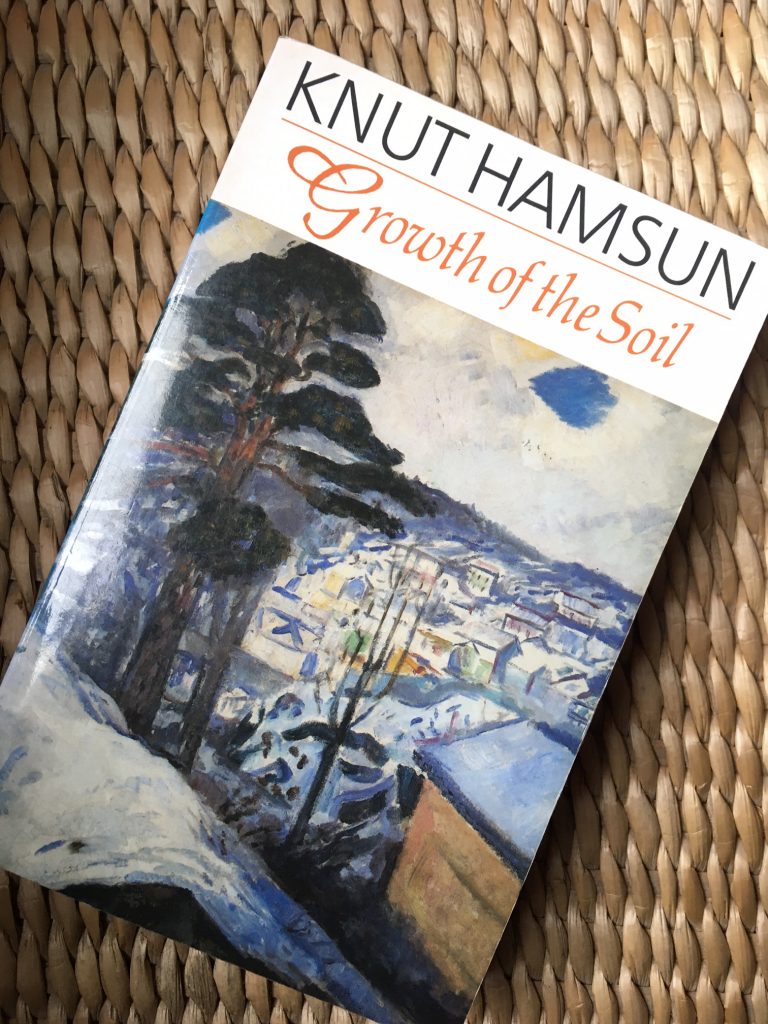
3. The language-developer: ‘Growth of the Soil ‘ by Knut Hamsun
One of my all-time favourites…….a novel, but also a poem to the land, and humans’ relationship to it. Every time I read this book I’m reminded of what it is to be human, and how imaginary and transient many of my worries, fixations and anxieties are. Books like this give me a way to talk about and develop my understanding of what really matters to me at my core. This book is an antidote to social media life of the 21st century.
4. The great book group read: ‘Girl, Woman, Other ‘ by Bernardine Evaristo
This was almost unanimously popular (an unusual occurrence!) in my book group. Evaristo manages to succinctly capture on paper so many different lives, of mostly – though not entirely – Black British women. For me this was a fantastic combination of entertainment and exposure to lives different from mine, but also, in sharing our responses to the characters, and which ones we loved, a great book group read.
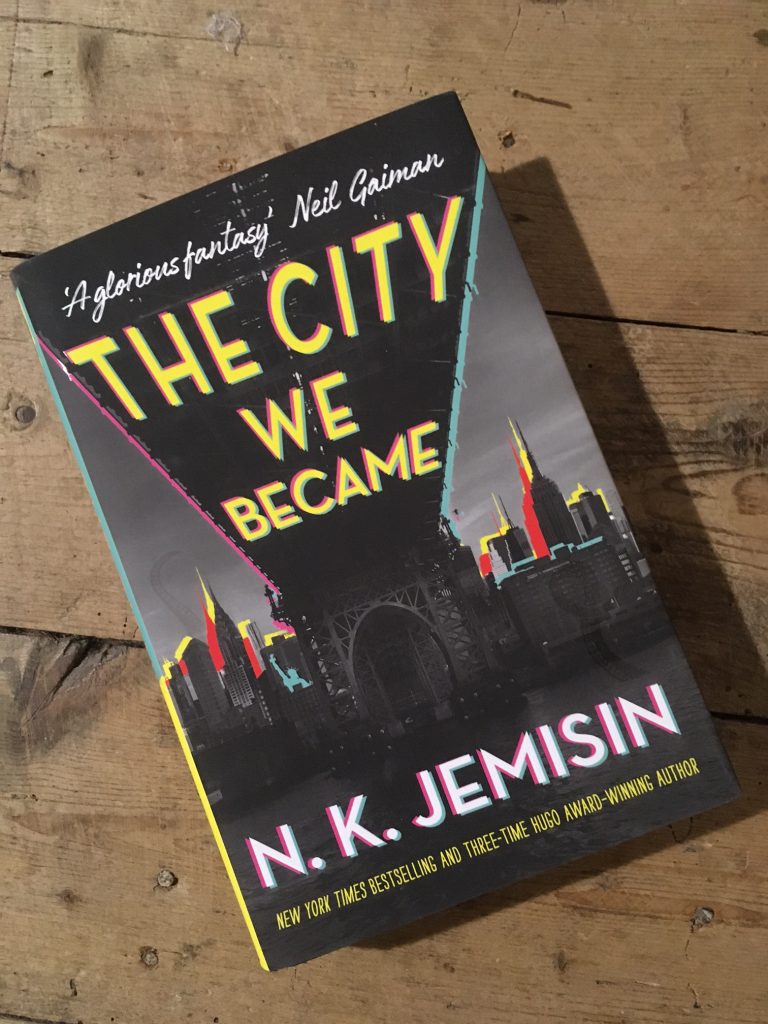
5. The pure enjoyment gift-to-self: ‘The City We Became ‘ by NK Jemisin
For escaping into new worlds, NK Jemisin, a science fiction / fantasy writer I’ve only recently discovered, takes some beating. (As a Black woman, she also challenges stereotypes of what a sci-fi writer ‘looks like’.) This book is set in a New York that is – and isn’t – just like the real one, and as well as having some full-on sci-fi concepts that take some bending your head around, is chock-full of strong female characters.
6. The self-help aid: ‘Rewild Yourself ‘ by Simon Barnes
The closest I’ve got to self-help recently, Rewilding Yourself is a gentle book that brings you closer to nature. In a year when taking cruises to Alaska to see arctic wildlife hasn’t been an option (even for those who can bear to burn the fossil fuel to do it), this little book is a great introduction to becoming a small-scale David Attenborough in your own back garden or field.
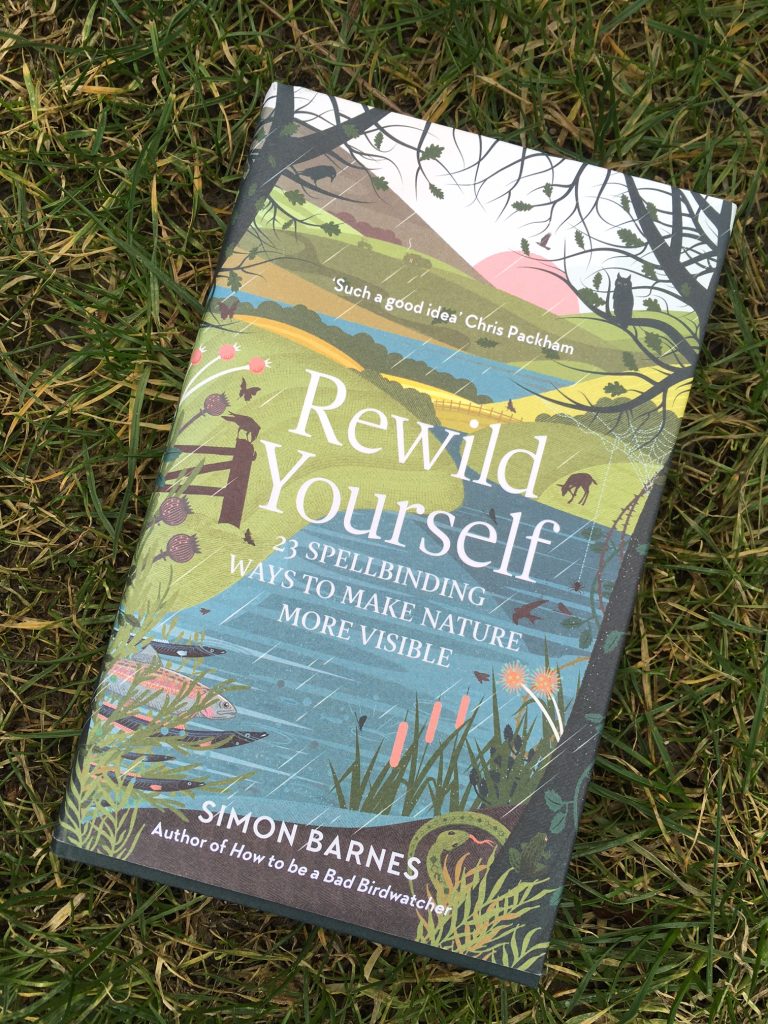
7. The self-discovery tale: ‘The Left Hand of Darkness ‘ by Ursula Le Guin
Le Guin was an amazing writer – her Young Adult Earthsea books were a part of my growing up – and I recently discovered her adult fiction. I never read one of her books without being given pause for thought – about the assumptions we make about what is ‘normal’ or ‘real’ based on our experience, environment and upbringing. She deals with philosophical questions with a light touch. The Left Hand of Darkness – written in the 1960s – challenges concepts of sexuality and gender with a delicacy that is impressive 50 years later.
Finally…………………
If you think you don’t like reading – perhaps you just need to give yourself more of a chance. Start with something that fills your soul. Read a love story, or a children’s book. A graphic novel (I’ve just finished the fantastic ‘Persepolis ’ by Marjane Satrapi, which tells her early life story, as a girl growing up in the Iran of the 1970s and 80s). When I need the reading equivalent of curling up under a blanket and hiding from the world, I read Joan Aiken’s children’s books, even now. Reading takes practice – but the rewards are so worth it!
It’s cheap, too, especially if you’ve got a library that is operational at the moment, or by making use of charity shops, or Betterworldbooks – although it’s also great to support authors by paying full whack for their labour, when you can afford it.
Of course, reading isn’t the only way of taking care of yourself! But it sure has benefits that can include learning more about yourself, giving yourself a break, connecting to others and building relationships.
If you’re a reader who struggles to prioritise time to read as much as you’d really really like to, I hope reading this may have helped you to recognise the longer-term benefits of doing what you love.
I’d love to hear what reading means to you, if you feel reading has a therapeutic benefit, and whether there are particular books you return to again and again.
And if reading isn’t enough, and you feel you could benefit from learning more about yourself through talking to someone, please get in touch here.
